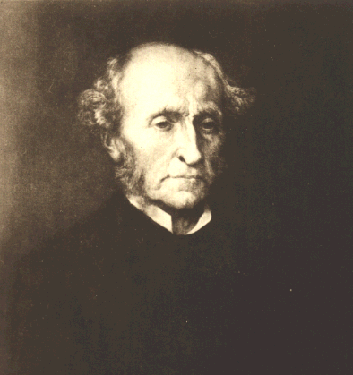What is the meaning of life? It is a question that theologians and philosophers alike have tried to tackle. The proposed answers frequently relate to morality: “To help others” or “To make a difference.” If we follow in this line of thought, utilitarianism might say that the meaning of life is to maximize utility and minimize pain (Bennet 55). However, Robert Nozick calls this idea into question in “The Experience Machine,” proposing that maybe there is something more to life than happiness.
Many philosophers have long regarded happiness as the ultimate goal in life. In Nicomachean Ethics, Aristotle describes happiness as “something complete and self-sufficient, it being an end of our actions” (Aristotle 12). Here Aristotle seems to state that happiness is the ultimate end to the means of living— the meaning of life, even. This is something that the hedonist would likely agree with. However Nozick seems to question the truth of that idea. In “The Experience Machine,” he proposes a hypothetical situation in which humans have the option to plug into a machine that would give you any experience you wanted. While in it, you would have no idea that what was happening wasn’t real. At the surface, this seems to be an ideal scenario. You can do, feel, and experience anything you want to; you can achieve a state of total bliss by handpicking the way your life will go. But Nozick argues that most people would not choose to plug into the machine. He states that there are more things that matter to us than just the way that we feel; if our internal emotional state is all that matters, why not plug in? Nozick says that we want to do things, and not just to experience doing them (Nozick 43). He says that what we are matters, not just what we do. And he argues that humans crave contact with a “deeper reality” (Nozick 43). All of these aspects of living are stripped away when you plug into the machine. And these parts of living seem to be ignored by utilitarianism, by just focusing on what causes you or others pleasure. Nozick states that “what we desire is to live ourselves, in contact with reality” (Nozick 45). This emphasis on wanting to stay in touch with reality implies that we want more than just the happiness that the machine would be able to supply. We crave the fabric of reality, including the hardships and the struggles that make happiness distinct. This mentality is echoed by other philosophers, such as Peter Singer. In his video “Let’s Talk About Your Hedonism,” he argues that we achieve meaning in our life through something deeper than just pursuing happiness. He says that “people that don’t aim at pleasure, but aim at something else, some activity that’s worthwhile in itself, and they get absorbed in the moment of doing what they’re doing… they actually get enjoyment and fulfillment out of it.” This idea directly supports Nozick’s argument that humans crave more than just pleasure in life, but something deeper and more personal.
While aiming to do what will make others happy is certainly noble, looking at it through the lens of Nozick’s article and supporting points of view, it just does not seem like enough to encompass all of it what is moral and all of what is important in life. Utilitarianism seems to miss out on a big part of life that Nozick seems to pick up on. What is just as important as happiness is the person, with the motivations and intentions that utilitarianism dubs as meaningless. What is important is a deeper reality that we can discover and get in touch with, which utilitarianism never addresses. What makes human life what it is is how we live in reality, with all of the different emotions beyond just happiness. All of these things are vital parts of the human experience, vital parts of the meaning of life.
While Nozick’s article never directly addresses utilitarianism, it seems to provide sufficient evidence to question the simplicity of the theory. He seems to argue that happiness is not all there is to be had. We cannot ignore the people we are, our motivations and intentions, or the importance of seeking a deeper reality than the surface on which hedonism and utilitarianism operate. The point of life, and the meaning of morality, are deeper and more complex than utilitarianism would suggest.
Works Cited
Aristotle. Nicomachean Ethics. Trans. Robert C. Bartlett and Susan D. Collins. Chicago: The University of Chicago Press, 2011. Print.
Bennett, Christopher. “Chapter 4: Utilitarianism.” What Is This Thing Called Ethics? London: Routledge, 2010. Print.
Nozick, Robert. “The Experience Machine.” Anarchy, State, and Utopia. New York: Basic Books, 1974. Print.
Let’s Talk About Your Hedonism. Prod. Big Think. Perf. Peter Singer. YouTube/Let’s Talk About Your Hedonism. Big Think, 16 Mar. 2009. Web. 3 Oct. 2014. <https://www.youtube.com/watch?v=Vfkcg05_uUg>.

